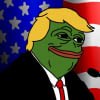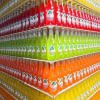No products in the cart.
Secret White House spreadsheet ranks US companies based on loyalty to Trump
Donald Trump has drawn up a scorecard for corporate America, ranking companies based on their loyalty to his administration.
The highly unusual list ranks 533 businesses and trade organisations based on their efforts to champion the US president’s “one big beautiful bill”, according to reports.
Companies that have fared well deployed a variety of tactics – often trumpeting the benefits of an individual policy, such as Uber’s celebration of Mr Trump’s “no tax on tips” proposal.
The scorecard, which Axios said will aid decision-making on corporate requests, comes as part of Mr Trump’s “America First” agenda and protectionist policies.
The chart allegedly ranks enterprises’ levels of support as either strong, moderate or low based on a series of factors.
Actions that affect a company’s rating are said to include social media posts, adverts, press releases, video testimonials, attendance at White House events and other engagements related to “OB3” – the administration’s nickname for the president’s set-piece tax and spending legislation.
According to Axios, businesses seen as “good partners” on the White House list include DoorDash, United Airlines, Delta Airlines, Uber, AT&T, Cisco, Airlines for America and the Steel Manufacturers Association.
AT&T recently announced “plans to more quickly build fiber infrastructure thanks to pro-investment policies in the one big beautiful bill act passed by Congress”.
Meanwhile Airlines for America – which represents major US airlines including United and Delta – lauded the bill’s $12.5bn (£9.2bn) investment in air traffic control.
The spreadsheet is said to be an evolving document, to which businesses’ support for other presidential initiatives can be added.
The ranking “helps us see who really goes out and helps vs those who just come in and pay lip service,” an official told the news outlet.
“If groups/companies want to start advocating more now for the tax bill or additional administration priorities, we will take that into account in our grading,” the official added.
It is not clear which businesses rank low on the list but those likely to have taken a hit may include clean energy companies, who heavily criticised the bill’s rollback of green incentives.
Mr Trump has also clashed with Wall Street in recent weeks. The president this week hit out at David Solomon, the Goldman Sachs chief executive, saying the bank had been wrong to predict that imposing US tariffs would hurt the US economy.
Posting on Truth Social, Mr Trump said the investment banker should focus on being a DJ – one of his former hobbies – and “not bother running a major financial institution”.
The president has also butted heads with the leaders of JP Morgan Chase and Bank of America, claiming the banks had refused to accept more than $1bn in deposits.
Mr Trump has signed an executive order requiring banks not to discriminate against clients on political grounds, in a move that could cause further headaches for the industry.
The White House has made public a parallel list tracking the so-called Trump effect, referring to announcements of investments in US manufacturing, production and innovation during the president’s second term.
It comes as the president is increasingly seeking to exert control over corporate America through protectionist measures, offering tax relief to businesses that bring jobs back to the US and threatening to impose tariffs on those that do not.
Business leaders have scrambled to pay homage to the president, offering the US government stakes in their companies and even bestowing personal gifts on the president in a bid to avoid sanctions.
Last week, US chip manufacturer Nvidia agreed for the US government to take 15pc of the company’s revenues generated in China as part of an agreement to restart exports to Beijing.
The unprecedented pact came after Mr Trump barred sales of Nvidia’s H20 technology in China earlier this year to boost his tit-for-tat trade war with Beijing, wiping billions of dollars from the $4tn company’s value in the process.
Tim Cook, the Apple chief executive, last week agreed to invest $100bn in American manufacturing after the president pledged to impose 100pc tariffs on foreign microchip imports.





































